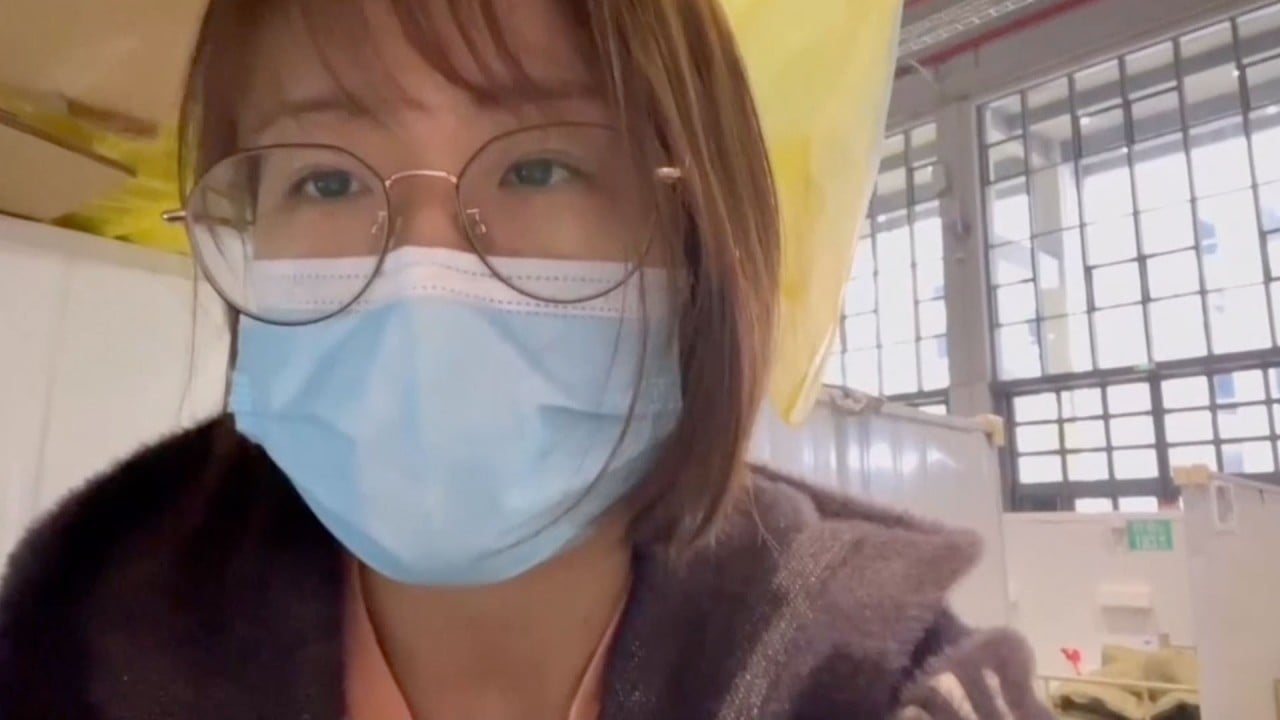
Coronavirus: Singapore to stop testing vaccinated visitors; most residents in Indonesia’s Java have Covid-antibodies
- City state has already dropped most restrictions for inoculated travellers, and people can now arrive at Changi airport without quarantine or test on arrival
- Elsewhere, study shows 99 per cent on Indonesia’s most populous island of Java have Covid antibodies, owing to a combination of prior infection and vaccination
The city state has already dropped most restrictions for inoculated travellers, and people can now arrive at Changi airport without having to quarantine or test on arrival. Visitors still have to do a test before entering the country.
Singapore aims to be Asia’s busiest airport as Hong Kong delays easing travel curbs
Most residents in Java have Covid-antibodies
Almost all residents of Indonesia’s most populous island of Java have antibodies against Covid-19, owing to a combination of prior infection and vaccination against the virus, a government-commissioned survey showed.
The March study of 2,100 people, conducted on Java, home to 150 million people, and Bali, Indonesia’s top tourism destination, revealed 99.2 per cent of people had Covid-antibodies, a 6 percentage point increase from a December survey.
Pandu Riono, an epidemiologist at the University of Indonesia, which conducted the survey with the health ministry, on Monday told Reuters the antibody levels in the latest survey were higher due to a wider booster shot roll-out, as recipients had stronger protection.

Pandu said the stronger antibodies may explain the faster rate at which Omicron variant infections declined in Indonesia.
The December study, of 22,000 people, was conducted nationwide and showed 86 per cent of Indonesians had antibodies.
For trans people in Indonesia, prejudice doesn’t end with death
The world’s largest Muslim-majority nation has recently loosened many of its pandemic restrictions, including waiving quarantine for foreign tourists and lifting a two-year ban on the mass exodus tradition during the Muslim holiday season of Eid al-Fitr.
Health minister Budi Gunadi Sadikin on Monday said the survey was a factor in the government’s assessment that the holiday “can go smoothly without bringing negative impacts on our people”.
The study closely tracks recent data in Britain, where the percentage of adults with Covid antibodies in the middle of March was nearly 99 per cent, according to its Office for National Statistics.
Japan approves Novavax vaccine
Japan’s health ministry on Tuesday formally approved Novavax’s Covid-19 vaccine, a fourth foreign-developed tool to combat the infections as the country sees signs of a resurgence led by a subvariant of fast-spreading omicron.
The ministry approval comes the day after its experts panel endorsed use of Novavax’s protein vaccine, which is designed with similar technology used to fight diseases such as the flu and hepatitis B, for the first two shots and a booster.
Health Minister Shigeyuki Goto told reporters that Novavax product adds variety to the choices available and could appeal to those who are hesitant to use Covid-19 vaccines such as Pfizer’s and Moderna’s, which are designed with newer technologies.
Jabs using Novavax vaccine are expected to start as early as late May.
Japan reported 24,164 new cases Monday, according to the health ministry. Japan in March lifted all Covid-19 restrictions as the infections slowed significantly, but experts noted signs of a resurgence in a number of prefectures during a season of travelling and parties for people marking graduation and the start of the academic and business year.
The government is trying to expand businesses and get the pandemic-hit economy back on track. Japan is slowly easing the border controls following sharp criticisms for its long-time restrictions on non-resident foreign students, scholars and businesspeople, but Prime Minister Fumio Kishida has said Japan is not considering restarting inbound tourism any time soon.
Booster shots have been slow in Japan and less than 50 per cent of the population had received booster shots of mainly mRNA vaccines from Pfizer and Moderna. A third vaccine, AstraZeneca, is hardly used due to public concern about reports of rare blood clotting and is largely donated to vaccine-scarce Asian countries bilaterally or through a UN-backed programme. About 80 per cent of the Japanese elderly population had received three shots.
Goto said Japan has agreed to purchase 150 million doses of the Novavax shots developed by the Maryland company, which will help stabilise vaccine supply in a country that fully relies on imports while development of its own vaccines have fallen behind. Novavax’s distributor in Japan, Takeda Pharmaceutical, is to locally manufacture 250 million doses annually.
Reporting by Reuters, Bloomberg, AP

